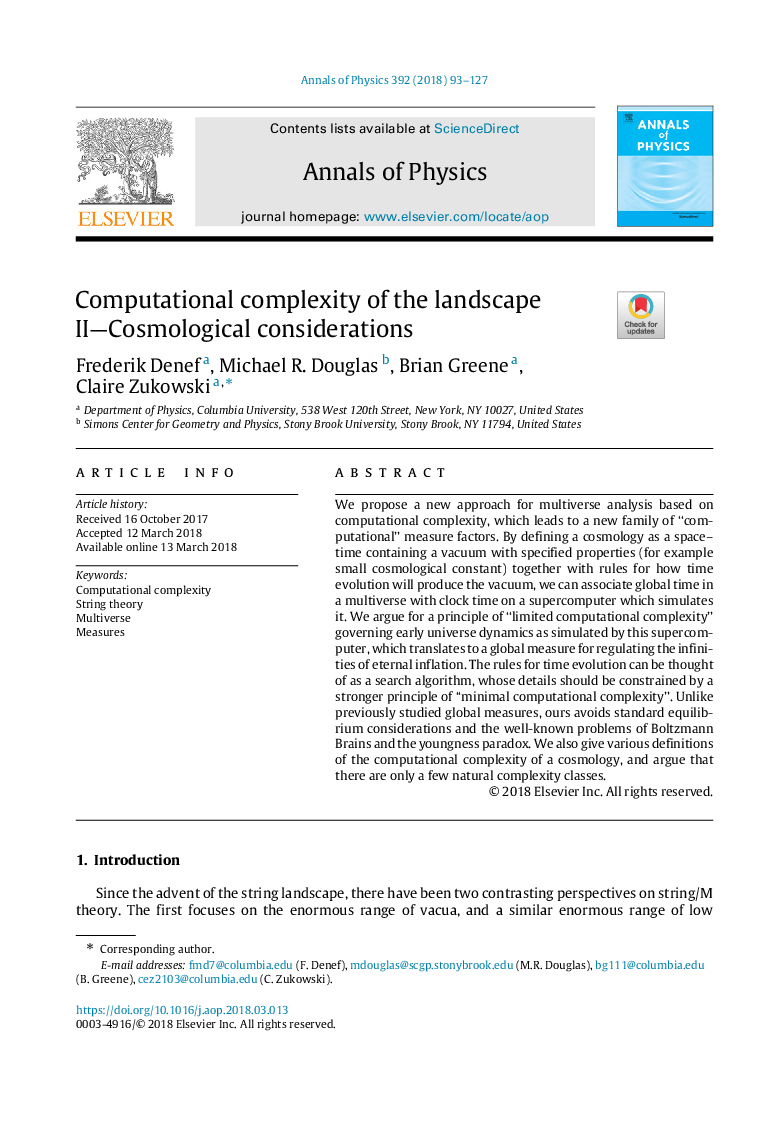| Article ID | Journal | Published Year | Pages | File Type |
|---|---|---|---|---|
| 8201343 | Annals of Physics | 2018 | 35 Pages |
Abstract
We propose a new approach for multiverse analysis based on computational complexity, which leads to a new family of “computational” measure factors. By defining a cosmology as a space-time containing a vacuum with specified properties (for example small cosmological constant) together with rules for how time evolution will produce the vacuum, we can associate global time in a multiverse with clock time on a supercomputer which simulates it. We argue for a principle of “limited computational complexity” governing early universe dynamics as simulated by this supercomputer, which translates to a global measure for regulating the infinities of eternal inflation. The rules for time evolution can be thought of as a search algorithm, whose details should be constrained by a stronger principle of “minimal computational complexity”. Unlike previously studied global measures, ours avoids standard equilibrium considerations and the well-known problems of Boltzmann Brains and the youngness paradox. We also give various definitions of the computational complexity of a cosmology, and argue that there are only a few natural complexity classes.
Related Topics
Physical Sciences and Engineering
Physics and Astronomy
Physics and Astronomy (General)
Authors
Frederik Denef, Michael R. Douglas, Brian Greene, Claire Zukowski,
